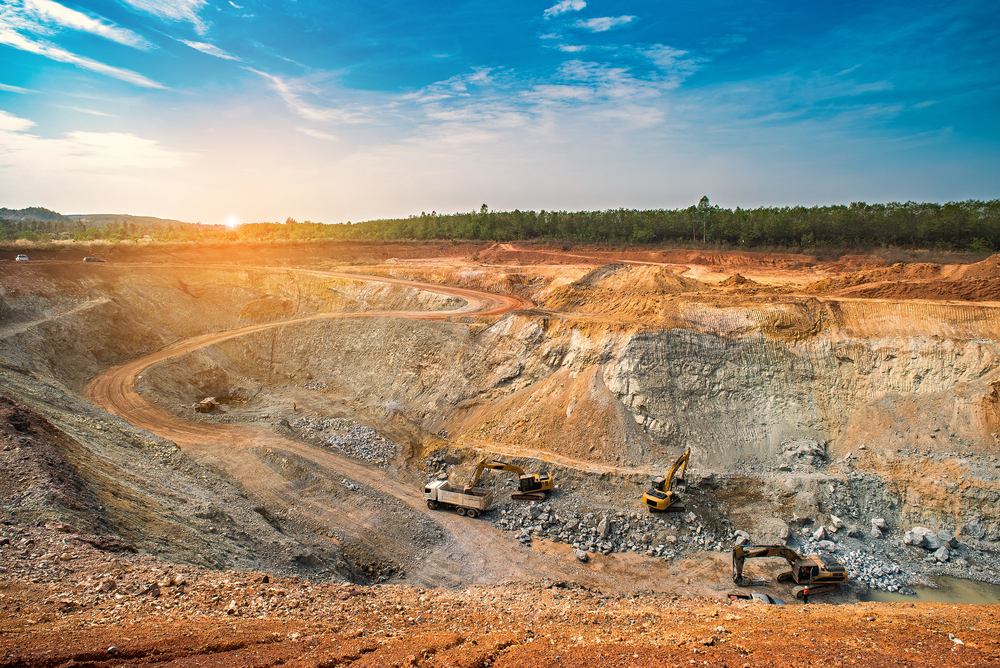The transition is drawing attention to the sustainability of the industry as demand increases for the raw materials required to make rechargeable batteries and power renewable energy technologies

The International Energy Agency (IEA) has warned that soaring metal prices might delay the energy transition (Credit: Shutterstock/Red ivory)
The energy transition is blowing hot and cold for the environmental, social and governance (ESG) challenges that are facing the mining industry.
That is according to analysis by credit rating agency Scope Ratings, which says the transition is drawing attention to the sustainability of the industry as demand increases for the raw materials required to make rechargeable batteries and power renewable energy technologies.
But it highlights that the potential consequences of developing mines, processing plants, ports, and transportation infrastructure in sensitive areas, is that they can destroy natural landscapes and habitats, disrupt sensitive ecosystems, and divert scarce water resources to the detriment of local communities while creating significant amounts of pollution.
“The challenge for governments, regulators and investors is that the sector plays a critical role in the energy transition by producing the very metals and minerals that society needs to make the transition a reality,” said Scope analyst Tommy Träsk.
Mining industry has been and can continue to improve its sustainability practices
The International Energy Agency (IEA) has warned that soaring metal prices might delay the energy transition by making vital commodities unaffordable without heavy investment in safe and secure new mines to increase supplies.
The energy watchdog said a Paris-aligned effort to meet net-zero by mid-century could lead to a six-fold increase in overall mineral requirements for clean energy technologies by 2040.
At an individual commodity level, energy-related technologies could account for 40% of copper and rare earth element demand by 2040, 60-70% of demand for nickel and cobalt, and almost 90% of demand for lithium.
Although that will bring sustainability practices within mining more into question, Träsk believes this is an area the industry has been and can continue improving on in the future.
He said new technologies, digitalisation and mine mechanisation are bringing productivity and efficiency gains to the mining process, including a reduction in the consumption of power, water and chemicals, as well as safety improvements.
“This all feeds through to credit quality – low costs, large size and diversity from constant reassessment of a company’s asset portfolio help ensure that capital is invested in the right projects at the right time,” added Träsk.
Energy transition is “transforming” the mining industry
Minimising the environmental footprint of a mine or processing plant is another important step for companies to take because many buyers of metals measure their indirect environmental footprint – the so-called “scope 3” category – and may be unwilling to procure products that are produced in an environmentally harmful way.
There is also pressure mounting on investors and financiers to shun firms with questionable environmental credentials.
But Scope Ratings believes the energy transition is “transforming” the mining industry and says this is visible in the accelerating plans to phase out coal as a fuel in the electricity industry.
Poland, one of the dwindling group of European economies still heavily reliant on coal, has just agreed to eliminate its use of the fuel by 2049.
And mining company Anglo American has decided to demerge its South African coal-mining assets to separate its main activities from what could turn out to be stranded assets in the future, following in the footsteps of Rio Tinto after the mining giant exited its remaining coal assets in 2018.
“At the same time, investment in renewable energy and batteries is stoking demand for aluminium, cobalt, copper, graphite, lithium and nickel – presenting potentially rich new income streams for the sector,” added Träsk.
He said size and diversity are advantageous in this space, as the largest miners have “generally succeeded in shifting portfolios and capitalising on growing demand for different metals and minerals depending on changes in industrial demand”.
“Take Anglo American’s investment focus on copper, which we believe could contribute 40-50% of the group’s earnings in 2023 compared with less than 20% in 2020, or the four billion Australian dollar ($3.15bn) merger announced by Australian mining companies Orocobre Ltd. and Galaxy Resources to create one of the world’s largest lithium producers,” added Träsk.
“Conversely, many smaller companies focused on single commodities, typical in the coal industry, have had to scale down or close operations.”
